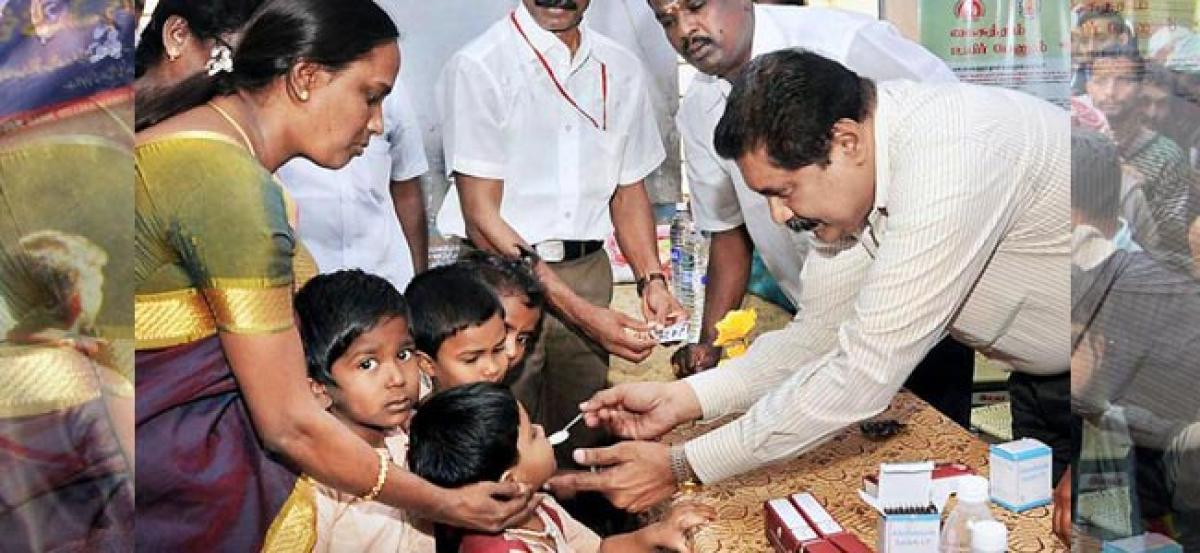Live
- HCLTech launches TechBee
- Industrial growth recovery expected in H2
- No arrests made yet, says Police Commissioner
- Bhupalapally: 22 selected for kabaddi tournament
- Safiya awarded PhD
- School for brick kiln workers’ children opens
- ISRO: A digital bridge and global diplomatic force
- Devanahalli toll plaza collects `308 cr in a single year
- Indiramma house survey conducted
- Alphores Narender Reddy donates Rs 1 lakh to library
Just In

Centre and State governments are taking all necessary steps to organise the National Deworming Day successfully on February 10. The National
Centre and State governments are taking all necessary steps to organise the National Deworming Day successfully on February 10. The National Deworming Day is a flagship initiative of the Ministry of Health & Family Welfare. It is the largest ever single-day public health campaign in the world targeting approximately 27 crore children aged 1-19 year throughout the country at risk of parasitic worm infection, through the platform of schools and anganwadi centres. The target population includes 8 crore and 19 crore children in the age group of 1-5 and 6-19 years respectively across 561 districts of the country.
Over 900,000 education and health workers administered Albendazole tablet to crores of children in schools and anganwadis across India yesterday. 137 districts in 14 States have been excluded from the deworming initiative this year as they have already covered during Mass Drug Administration in Lyphatic Filarsis program of the Health Ministry. As per World Health Organization (WHO) database (2012), it is estimated that 241 million children (68%) between the ages of 1 – 14 years in India are at risk of parasitic intestinal worms. In 2015, the Government of India launched National Deworming Day in 11 States/UT with a target of 10.31 crore children between ages of 1–19 years, against which a total of 8.98 crore children received deworming tablet (Albendazole).
In 2016, the Government of India targeted covering approximately 27 crore children. The National Deworming Day will mobilize health personnel, state governments and other stakeholders to prioritize investment in control of Soil Transmitted Helminth (STH) infections. The STH treatment consists of administering Albendazole tablets. Along with Albendazole administration, behaviour change practices in terms of cleanliness, hygiene, use of toilets, wearing shoes/chappals, washing hands etc. is also important to reduce incidents of re-infection.
India has the highest burden of parasitic worms in the world. Parasitic worms in children interfere with nutrient uptake, and can contribute to anaemia, malnourishment, and impaired mental and physical development. According to the 2012 report ‘Children in India’, published by the Ministry of Statistics and Programme Implementation, Government of India, 48% of children under the age of 5 years are stunted and 19.8% are wasted, indicating that half of the country’s children are malnourished.

© 2024 Hyderabad Media House Limited/The Hans India. All rights reserved. Powered by hocalwire.com







